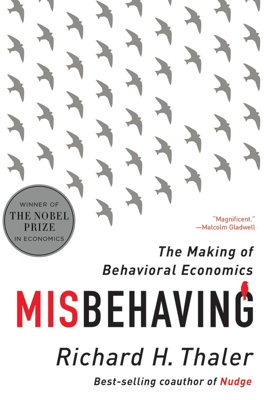The Planner and the Doer
Understanding Self-Control through the Planner-Doer Model
The author delves into the complexities of self-control—a topic scarcely covered in traditional economics—by drawing inspiration from both economists and psychologists. Notably, Robert Strotz's work on self-control in economic decisions introduces time inconsistency, highlighting that certain conditions are necessary for preferences to remain consistent over time. However, these conditions, like exponential discounting, are often unmet, leading to preference changes that might be considered mistakes.
The tension between long-term plans and immediate desires is explored via the tale of Odysseus and the Sirens, representing the foundational struggle in self-control. Odysseus's strategies—to bind himself and block his crew's hearing—illustrate commitment devices aimed at aligning future actions with present intentions.
Walter Mischel’s experiments on delayed gratification with children further emphasize the impact of immediate visibility and cognitive strategies on the ability to wait for larger rewards. Surprisingly, these early behaviors predicted significant future outcomes such as SAT scores and career success, suggesting profound implications of self-control from a young age.
George Ainslie's research introduced an understanding of self-control through hyperbolic discounting observed in animals, indicating that beings tend to prefer immediate smaller rewards over larger delayed ones, leading to preference reversals akin to human behavior.
Creating a Conceptual Framework: The author’s principal contribution—co-developed with Hersh Shefrinicomes—is a model positing two selves: a forward-looking planner, who values future welfare, and a present-focused doer, responding primarily to immediate stimuli. This model is constructed on the metaphor of self-control challenges being an interplay between these two selves, akin to principal-agent relations in organizations. Where direct restrictions (or safes for each day’s energy bar, in the framed scenario) on the doer's choices are impossible, the planner might employ guilt as a deterrent, raising the psychological cost of immediate consumption.
The model illustrates the perpetual internal tug-of-war between momentary pleasures and long-term benefits, commonly resolved through commitment strategies or willpower, which inherently reduce delight by associating negative emotions with excessive indulgence.
Model's Significance and Evolution in Behavioral Economics: While the planner-doer model epitomizes an intuitive approach to understanding self-control, it has not been universally adopted within the field. Later developments, like the beta-delta model proposed by David Laibson, have gained traction due to their mathematical elegance and simpler portrayal of present-biasness in economic behaviors. This model underscores that individuals undervalue future rewards compared to immediate ones, leading to time-inconsistent behaviors even when future repercussions are known.
In conclusion, by integrating insights from various disciplines, the author provides a robust framework for recognizing and managing self-control issues in economic decision-making, highlighting the intricate mechanisms through which individuals balance or fail to balance immediate urges against long-term objectives.
